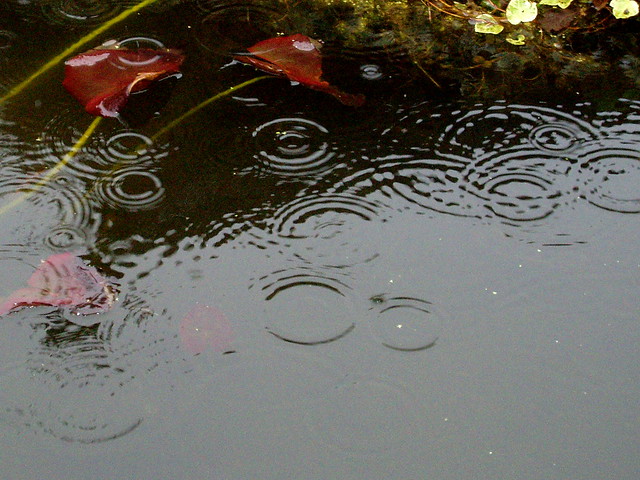
The Value of Remote Places
Many of us believe there is a special sacredness in remote places.
We leave the urban neighborhoods where we live and seek spiritual life in remote places. Sometimes on mountain tops or beaches along the ocean, or in the woods, we look for sacred spaces.
Familiar cathedrals and abbeys have been absorbed by cities, and we look for more remote places. We want to get away, to put the diversions and distractions of our everyday lives behind us.
It usually takes me five or six hours to drive to New Camaldoli Hermitage where I am a lay oblate. Now, though, the storms along California’s coast have made the trip impossible. Slides south of the hermitage have closed the Pacific Coast Highway, Highway 1, which is the primary access road.
Twice during the last few years the highway has been closed when I planned retreats at the hermitage. Once it was a slide caused by a winter storm, and another year it was a summer fire.
We seem to believe serious spiritual life demands we struggle to overcome challenges and make sacrifices. It makes us nervous when our spiritual path feels too comfortable, too convenient.
I try to make a retreat at New Camaldoli at least once each year, though it is not necessary. I follow monastic practices whether I am at the hermitage or at home. There is nothing inherently more spiritual about being at the hermitage, even when it feels that way.
There is value in accessing remote places of spiritual depth, whether destinations on the highway or within ourselves.
Sometimes we decide we need to step out of our regularly scheduled lives and visit somewhere less accessible. We pack what we think we will need and begin our journey of exploration. What will we discover on the way?
Exploring Our Way to Remote Places
Some of us have stayed close to home for the last few years. We may have forgotten how to explore remote places, or lost the equipment we think we need.
There are people who will not explore remote places because they are afraid of getting lost, of not finding their way back. Other people believe exploring remote places is too demanding. They prefer to stay in front of their large televisions, or the screens on their phones and computers.
Some of us are convinced we need to spend every night in our own comfortable beds.
If we stay where we are we will never know what we could have discovered somewhere more remote. We will not see the scenery or find the resources within ourselves which will carry us forward.
Exploring our way to remote places is all about going beyond the beaten path. We take time to leave the familiar even when we do not believe we are completely equipped for it.
There are people who seem to believe spiritual life is all about staying on the path. They like to believe our spiritual path is paved and marked so we cannot lose our way.
It is often difficult for me to see the path, much less follow it. I believe spiritual life is about listening and exploring. If we pay attention well, we will know where we are being called to go.
I often find myself exploring places I never thought I would discover.
It can be difficult for us to explain how we got to the remote places we explore. We listen and trust spiritual life to guide us.
We are not responsible for drawing a map for others to follow, or for justifying our own exploration.
Discovering Our Remote Places
The monks at the New Camaldoli Hermitage reflect on a text written more than 1,000 years ago by Saint Romuald known as his Brief Rule:
“Sit in your cell as in paradise.
Put the whole world behind you and forget it. Watch your thoughts like a good fisherman watching for fish. The path you must follow is in the Psalms — never leave it.
If you have just come to the monastery, and in spite of your good will you cannot accomplish what you want, take every opportunity you can to sing the Psalms in your heart and to understand them with your mind.
And if your mind wanders as you read, do not give up; hurry back and apply your mind to the words once more.
Realize above all that you are in God’s presence, and stand there with the attitude of one who stands before the emperor.
Empty yourself completely and sit waiting, content with the grace of God, like the chick who tastes nothing and eats nothing but what his mother brings him.”
Reflecting on this text has helped me find remote places when they have felt particularly far away.
“Do not give up.”
Steps Toward Remote Places
I tend to find remote places in stillness, or at least at times when I pause to listen to stillness.
Rocking in a chair and watching the birds outside my cabin at the hermitage allows me to put the whole world behind me and forget it. Sitting still and breathing deeply for several minutes with my eyes closed helps me allow myself to be drawn into spiritual life. We empty ourselves and sit waiting, content with the grace of God.
Like my friends the monks, we discover remote places as other concerns drop away. We take care of each other, taking time to feed each other and to rest.
There are so many things we worry about which, in the final analysis, do not matter. This new year is teaching us all the things which occupy our minds and our calendars which are ultimately of no consequence.
All which drives us, everything we are convinced we need, can be found in our remote places.
Sit in your cell as in paradise.
How will this be a year of exploring remote places for us?
When will we take time to explore remote places this week?
Greg Richardson is a spiritual director in Southern California. He is a recovering assistant district attorney and associate university professor, and is a lay Oblate with New Camaldoli Hermitage near Big Sur, California. Greg’s email address is [email protected].












